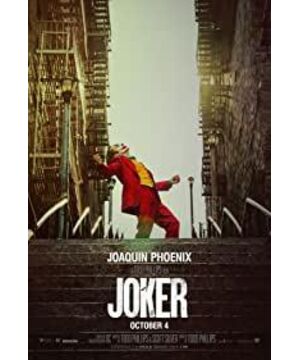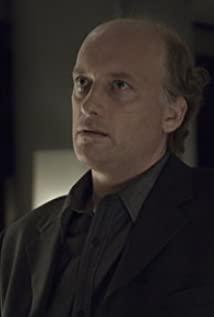11.10 After reading what I wrote that evening (buying while buying), many points of view were actually not fully demonstrated. But overall, the current attitude towards "Joker" has not changed for the time being. Can discuss! (Seeking light spray
This article first appeared in "Gyro Movie"
When the former gentle and kind single mother neighbors screamed at Fleck who broke into the private space, the audience may have fallen from the protagonist's perspective set in the film for the first time. About the ambiguous memory space in the mother's mind, it seemed to be suddenly enveloped in Fleck. The huge tension between reality and illusion summons a powerful surge of emotions at this moment. They are different from each other, but they are hard to separate.
However, the high-density kinks like this did not succeed every time in the film. When the film as a whole deals with the relationship between a character's journey with a strong illusion and the real world behind him, it does not show that it is free to cruise, but falls between the two, so that it empties the core character who should be full enough.
Offensive, or cowardly catering?
"Joker" and the person the Joker should be physically offensive. In terms of what the film is trying to show, it seems to be true. Fleck's laughter, dance, attack, everything is so surly, so decadent and brave toward turmoil and death, he has already drawn a clear line from the characters in mainstream heroic movies.
The creator probably knows the offensive nature of this power, so he tries to use more additional methods to allow the audience to resonate with this incomprehensible character.
The most prominent of these is the soundtrack from beginning to end. For every plot point where Fleck's emotions are condensed, this turbid and heavy buzzing will come and go one after another, trying to pour Fleck's emotions out in an absolutely understandable way. The creator seems to presuppose that the protagonist’s personality is inaccessible, so he easily surrounds the audience with an abundant auditory world.
However, in this easy process, the soundtrack undermined the character’s constant cohesion and density, and weakened the solemn nature of this treacherous character— this solemnity is not a sense of admiration to look up to, but rather When the audience actually has a distance from the character image, first admit the existence of this distance. Conversely, ignoring this distance means cowardly seeking simple resonance.
To match the soundtrack, the film is also based on a similar single-threaded logic. First of all, the creator clearly is the dominance of Fleck's subjective spiritual world; secondly, the creator has designed an external world that constantly puts pressure on him. However, in this narrative dominated by "illusion", the forward momentum of "illusion" is almost entirely dependent on external squeeze-this squeeze is so clear and unified that it makes the characters' reactions also neat Row together. Only in the few details of Fleck's life that seem to be far from the main plot, and in those moments of distraction, can I obtain a certain face that cannot be completely attributed and generalized. The remaining plot seems more like a causal stack of connected questions.
"Can we understand him?" "Perhaps not, but let's assume that we have understood!" This seems to be the basis of the film at the beginning, but in the end, this premise has not been fully questioned. After empathy is completed, the problems before empathy are automatically ignored.
The same is true for "offensive": when it is completed in a given and abundant context, it has made the context that should offend the audience nearly transparent, so that the process of entering the context is cancelled-the actual offense is It is replaced by an illusion, and even distorted as a kind of catering.
In the end, this also conceals the uniqueness of the clown as a character that transcends the usual structure of society: he could be extremely surreal and extremely realistic, but now, he is only a very sensible and regulated reality.
Characters, or an orderly performance?
Joaquin Phoenix's performance is undoubtedly wonderful. But when the performance must be raised as a stand-alone argument for praise, the overall effect of the film needs to be reassessed more carefully. The performance of Phoenix in "Joker" is certainly outstanding, but its close connection with the film's drama and audio-visual strategy cannot be ignored either.
At the beginning of the film, Phoenix gave the iconic action of a clown opening a smiling face. Many viewers may be slightly shocked by the sudden emotion at the beginning of the article- this painful expression is not a release after a certain circuitous plot, but the daily life of the character itself. So we are led to look forward to a more turbulent world in him.
However, in line with the logic mentioned above, I can only see the frame in which this character can be analyzed in Joaquin. Although Joaquin showed a nearly ever-changing smile, each time it does not seem to show the character's smile itself (and the smile can actually contain more complex character attributes), but is pre-linked to the logic of the structure of the play Go in. If every smile is a level, then this level becomes a bunch of tough threads that draws us into a stereotypical "typical" low-level individual who is oppressed by society-at this time, the rich level makes people feel comfortable. It is dazzling, but it finally forms a kind of clear and recognizable that is almost unified.
A vivid character exits and is replaced by a performance captured by a powerful drama setting. Although the rich emotions in the subjective world of the characters are abundant, they are omniscience that can be transmitted to the audience without distance. Where does that illusory power go? We don't know. Because the shriveled reality of causality seems to be a form of shrinking hallucinations.
Of course, I can't deny the wonderful moments that I arrived at through Joaquin's body.
For example, with regard to the solo dance in the bathroom, he was almost like a sculptor, sculpting his body intermittently. At that moment, his posture opened up to the indescribable rhythm of life with abnormal beauty, so that the world around the lens was all twisted by his rugged lines. For another example, when he steps up the stairs in the evening, his collapsing body seems to be falling continuously, the stairs that go up seem to be a dimly falling corridor, and the cold blue sky at the end becomes a mysterious pool of water.
But these are so small in the overall structure that I cannot feel the untouchable real gravity in this flash of emotion. The over-orderly performance finally filled in or even erased this gloomy character.
The era, or an overhead reality?
Is "Joker" a work related to our time? At least from the point of view of its box office sweeping the world and far surpassing a single DC fan group, it is completely a work in our time. But how to establish this relationship and how effective the establishment is is another question.
In the previous article, we tried to confirm that this is a work that is dominated by hallucinations in name but is actually completely penetrated by "reality". In this part, we might as well ask directly, if this model is understandable, what is the texture of the "reality" itself that is manipulated behind the scenes?
What we see is the ever-widening wealth divide, the high concentration of political and economic power and cultural power in TV sets; it is the failure of thorough communication between people in the run-down city, and it is the result of the already miserable bottom society. Cruel and harm each other. If the patterning of the above background details is mild and still interacts with the protagonist to a certain extent, then the most vivid social depiction in the film is highly rigid. The low-level groups with clowns as their cultural banner were able to raise their arms and chant for equality at first, but later they were presented as the most crudely understood "rabbit crowd" in the piecemeal patchwork.
When Fleck danced in the crowd, we seemed to have personally come to his sacred place in this vast group with them-but in fact, he has no real connection with this group of angry people. What they have is just an empty encounter after an accidental event has been inevitable and deduced. This process seems to be a long butterfly effect, but in fact it is a background frame that cannot be more rigid. What is its complexity? We have no way of knowing. To explore the cause of this dilemma, perhaps we still have to return to the relationship between illusion and reality.
The thin relationship between Fleck and the bottom group is largely due to the protagonist's perspective set by the film. On the one hand, in this hysteria-like mental world, the external world can only exist as sporadic fragments; on the other hand, because this spiritual world is a mechanical structure directly caused by the external world, we are in his illusion China also cannot glimpse the uncertainty of the outside world.
Following the close-ups of the actors one by one, we seem to have entered this "character" and touched the authenticity of the world in which the character lives through the authenticity of the character. However, the authenticity of this "character" is wrapped in a strong and fragile transparent film, and everything displayed in it has a real halo-solidity is because it maintains the inner world of the character; fragility is Because, once we pierce it, we can only face the overhead reality.
This suggests that the criticism of the film in the North American media may not be so difficult to understand. It is probably not criticized because of the so-called "incitement to violence", but because the patterned group violence it creates is precisely in line with the imagination of the mainstream elite critics in a rebellious direction. In other words, in it, we can only see the crude inversion of the violent actors, but not the potential for reconstruction of the violent logic.
From this point of view, the defects of "Joker" may all be attributed to the failure to grasp the dialectical relationship between reality and illusion. This failure is twofold. It is not only the mechanical domination of Fleck's psychology by the external world, but also the closed rejection of Fleck's inner world to the external world. Because of this failure, it cannot create a very aggressive character in a non-frivolous way, it cannot give an outstanding performance a large enough emotional extension space, and it cannot touch the complexity of the reality of the times.
Of course, perhaps, as Zizek said, the greatest success of the film is precisely to clearly and face up to this widespread anxiety, and even to leave room for a positive future. But in what kind of flat posture does this nihilism appear in the film, can it really be able to overcome itself? The brokenness of this aesthetic may have given an unsolvable answer. "Joker" is already a movie of our time; but after "Joker", the era still yearns for a more full and unpredictable "Joker" arrival.
View more about Joker reviews











